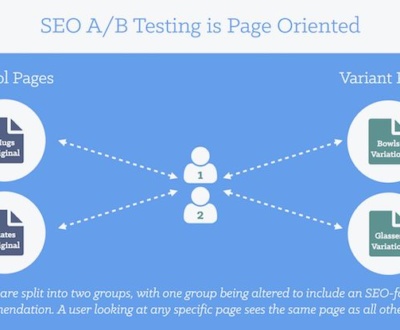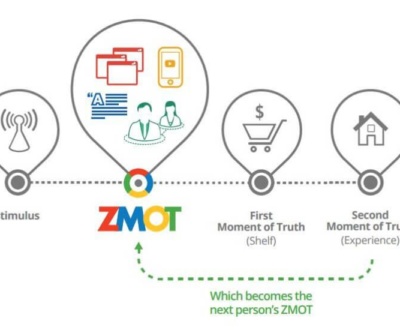“Monopoly” is a dirty word. In many countries, anti-competition and antitrust laws are established to maintain market competition and regulate anti-competitive practices. These laws are enforced to protect the consumer from what is perceived as inevitable price gouging that springs from a corporation owning most of the market for a given product.
While governments go to great lengths to create and enforce laws to prevent monopolies, there are situations in which they actively encourage them. Just as anti-competition and antitrust laws are designed to protect the consumer from greed, government monopolies are theoretically designed to do the same (i.e. utility companies).
So why do monopolies have a bad rap? Similar to dog-fighting, you give human beings enough power and control over something and they’re going to find a way to make a huge unethical mess of it.
Five Times Traditional Monopolies were Bad for Humanity
- That time when East India Company took over the world.
“Well that escalated quickly,” said everyone on Earth after East India Company received their government-granted monopoly on trade with India in 1600. Largely unregulated, the company rose to account for half of the world’s trade, became India’s ruler with the power to levy taxes and direct armed forces with their private army of 260,000 — twice the size of the British Army at the time. After ruling India for nearly 100 years, the Indian Rebellion of 1857 effectively brought East India Company’s control — and existence — to a bloody and bitter end.
- That time when the United States Postal Service almost went bankrupt.
Maybe not “that time.” Several times. In a downward spiral for over twenty years, declining business and rising expenses are not a recipe for success. Ever-increasing adoption of texts and email, paying bills online, and going paper-free for bank statements are part of the problem.
“The [United States Postal Service] is a textbook example of a monopoly that, because of a lack of competitive pressures, faces little incentive to minimize costs and thus continues to operate at inefficient levels,” writes Nick Abraham in Forbes.
Today, USPS is poised for a government bailout as it won’t ever be able to fund its retiree and pension programs. Last year, it paid only $6.7 billion towards those programs instead of the $12.6 billion required.
- That time when British Telecom threw customer service out the window.
Formerly nationalized British Telecom came back from near bankruptcy in the ‘90s. No matter how much restructuring the company is forced to undergo, BT continues to grow — unfortunately for its customers.
Customer service is often the first casualty of a monopoly. Today, BT has expanded into more profitable products and services with less regulation — mainly broadband internet service, where the company has a stranglehold.
“BT is getting a lot bigger again, but it doesn’t translate into any noticeable improvement in customer service,” writes Jeremy Warner in the The Telegraph. “By attempting to recreate itself as a cross-selling, cross dressing monster, BT is once again putting the pursuit of monopolistic profit before the public interest.”
- That time when U.S. Steel didn’t share.
Having sole access to a scarce resource is a surefire way to become a monopoly that everyone hates. In the case of Andrew Carnegie’s U.S. Steel, the corporation controlled about 70% of the steel production in the United States. Price gouging and a lack of efficiency paved the way for smaller, cheaper competitors. The company stagnated and the underdogs slowly ate away at its market share. Greed doesn’t win in the end.
- That time when De Beers become a cartel.
The diamond industry isn’t known for being warm or fuzzy or ethical or humane. If the best way to become a monopoly is to find a scarce resource and control it, you could take the De Beers route and find a really sparkly common resource and make it scarce.
Diamonds were primarily sourced from Brazil and India and were a rarity up until the late 19th century, when the diamond rush in South Africa flooded the market and effectively killed demand with prices plummeting. This is when De Beers purchased all South African diamond mines. The company decided to release a limited number of diamonds to create scarcity and, through marketing, increase demand.
In 1902, when the company controlled 90% of the world’s rough diamond production and distribution, De Beers would determine the amount of diamonds they wanted to sell, and at what price, for the entire year.
The De Beers monopoly, charged with countless human rights violations in its mines and outright savage and borderline criminal business practices (more along the lines of a drug cartel), was untouchable. The monopoly ended in 2011 when the family business decided to sell 45% to Anglo American, a U.S. mining company. De Beers claims this was because there was no left in the family who was interested in pursuing the diamond business.
In reality, De Beers predicted the inevitable downfall of the diamond industry by closely monitoring the purchasing habits of younger, less traditional generations who are more contentious buyers and the popularity of “conflict free” and fair trade products.
Lessons Learned:
- East India Company: Monopolies need to be regulated and limited in their power early in their conception.
- U.S. Postal Service: The key to a successful monopoly is efficiency and innovation. No competition means no incentive to minimize cost. In the case of government-created monopolies, the real loser here is the taxpayer.
- British Telecom: No competition usually translates to poor customer service, angry consumers who are out to dismantle your company at every turn.
- U.S. Steel: Price gouging will only encourage competition and lead to your downfall.
- De Beers: Know when to fold.
Becoming a Modern Monopoly: The Case for Amazon
Amazon is creating a monopoly on commerce. Not books. Not electronics. Not videos. Not groceries. Commerce.
“It set out to become the company that when you said to yourself, ‘I’m going to go buy something online,’ you would say, ‘I’m going to go to Amazon,’” writes Alex Shepherd in New Republic. “Now Amazon is seeking to become the company when you say to yourself, ‘I’m going to go buy something’ you think Amazon.”
Amazon has been quietly taking over the retail world since 1994, one book at a time. They have all the heft of a 1600s East India Trading Company minus the deranged bloodlust of a postmodern Napoleon. If all these laws are designed to protect consumers why does no one stop Amazon from destroying brick-and-mortar retailers?
Because consumers love Amazon and their business practices do not fall under the traditional definition of a monopoly. The same strategies for creating a monopoly in the 17th Century still apply today, but Amazon tacks one at the end which makes the company infallible: do no harm.
Before Jeff Bezos, another billionaire who practiced this mantra fell victim to an antitrust witch hunt: John D. Rockefeller. Standard Oil was truly the Amazon.com of the 1800s and Rockefeller was a man who was ahead of his time.
How to Become a Modern Monopoly in 5 Steps
- Be ruthless in your efficiency. Having a complete disregard for business or human ethics like East India Company or De Beers is one way to build an empire, but you could channel that competitive energy into having the lowest overhead possible. Rockefeller was a former accountant and a known penny-pincher.
Rockefeller optimized every last bit of Standard Oil, from his storage facilities, to his refining methods, to the number of non-refined products, such as waxes, that could be squeezed from every last barrel.
Similarly, Bezos started his business small, selling competitively priced new and used books, online. With low overhead (running warehouses vs. bookstores) he could keep prices competitive while pocketing hefty returns. After 23 years, Amazon is just now diving into brick-and-mortar concepts.
- Vertical integration. Rockefeller’s main priority with Standard Oil, always, was to improve efficiency. Vertical integration was a no-brainer. For example, by purchasing his own forest and producing his own barrels, Rockefeller lowered per-barrel costs from $3 to $1 while increasing reliability and quality.
With speed, convenience, and the lowest possible prices at the core of Amazon’s business model, Bezos is the modern day equivalent. Amazon aims to control every aspect of their logistics via Fulfillment By Amazon, which stores, packs, and ships for brands and retailers selling on its site which has since expanded into Global Supply Chain by Amazon, a revolutionary system that will, according to Forbes, “automate the entire international supply chain and eliminate much of the legacy waste associated with document handling and freight booking.”
- Embrace new trends. For Rockefeller, that trend was trains. He provided railroad companies his own Standard Oil tankers and, him being him, lowered transport costs from $900,000 to $300,000 per trip for the companies he partnered with.
“Embrace external trends,” wrote Bezos to his shareholders this past April. “If you fight them, you’re probably fighting the future. Embrace them and you have a tailwind.” He was referring to machine learning and artificial intelligence. If it’s part of his customer’s future, it’s part of Amazon.
- Don’t price gouge. U.S. Steel monopolized a resource then increased its prices. When a monopoly charges more than fair market value for a product, they run the risk of spurring competition from small companies. Rockefeller was pre-emptively accused of price gouging. It was assumed that this was a tactic he’d eventually resort to, but he never did.
Standard Oil controlled so much of the market that he didn’t feel he needed to. Rockefeller didn’t get greedy. When he started Standard Oil in 1865, a gallon of kerosene cost 58 cents. Shortly before the U.S. government dismantled the company, Standard Oil was charging 7 cents a gallon when Standard controlled 90% of the market.
“I ascribe the success of the Standard to its consistent policy to make the volume of its business large through the merits and cheapness of its products,” said Rockefeller, “It has had faith in American oil, and brought together millions for the purpose of making it what it is, holding its markets against the competition.”
Bezos continues to follow suit, further refining his company’s efficiency, his global supply chains, to offer his customers the lowest possible prices with unparalleled speed.
- Do no harm to your customers. While Standard Oil was found guilty of violating the Sherman Antitrust Act and broken into 34 separate entities, Rockefeller never resorted to throwing his customers under the bus. He knew that if he raised prices, his customers would burn wood and other resources instead and international competition would pounce.
“Customers are always beautifully, wonderfully dissatisfied, even when they report being happy and business is great,” Bezos noted. “Even when they don’t yet know it, customers want something better, and your desire to delight customers will drive you to invent on their behalf.”
Both of these entrepreneurs didn’t stray from business ethics, stayed efficiency and customer-focused, and dominated and, in the case of Amazon, continue to dominate their target markets. Even if you’re thinking smaller than a monopoly, these lessons can be applied to growing your company quickly and strategically.
Visit our about page - woodleymarketing.com/about/
About us and this blog
We are a digital marketing company with a focus on helping our customers achieve great results across several key areas.
Request a free quote
We offer professional SEO services that help websites increase their organic search score drastically in order to compete for the highest rankings even when it comes to highly competitive keywords.
Subscribe to our newsletter!
Recent Posts
- Are You Still Using These Black Hat SEO Tactics? August 17, 2017
- The Biggest Ranking Factors for SEO in 2017 July 27, 2017
- Do No Harm: How to Become a Modern Monopoly July 15, 2017









Pingback: french bulldogs for sale ca
Pingback: frenchie for sale houston
Pingback: Fort Lee
Pingback: fertility acupuncture
Pingback: acupuncture
Pingback: French Bulldog Puppies Near Me
Pingback: French Bulldog Puppies Near Me
Pingback: French Bulldog For Sale
Pingback: French Bulldog Puppies Near Me
Pingback: Frenchie Puppies
Pingback: French Bulldog Puppies Near Me
Pingback: French Bulldog For Sale
Pingback: French Bulldog For Sale
Pingback: Frenchie Puppies
Pingback: French Bulldog Puppies Near Me
Pingback: Frenchie Puppies
Pingback: rent a golf cart
Pingback: rent a golf cart
Pingback: gray french bulldog
Pingback: minnect expert
Pingback: French Bulldog Adoption
Pingback: French Bulldog Adoption
Pingback: French Bulldog Adoption
Pingback: French Bulldog Rescue
Pingback: French Bulldog Rescue
Pingback: French Bulldog Adoption
Pingback: golf cart rentals isla mujeres
Pingback: dog registration
Pingback: french bulldog boston terrier mix
Pingback: Dog Papers
Pingback: Dog Papers
Pingback: Dog Papers
Pingback: Dog Papers
Pingback: Dog Papers
Pingback: Dog Registry
Pingback: Dog Papers
Pingback: Dog Registry
Pingback: Dog Papers
Pingback: Dog Registry
Pingback: How To Obtain Dog Papers
Pingback: Dog Papers
Pingback: How To Obtain Dog Papers
Pingback: Dog Registry
Pingback: Dog Papers
Pingback: How To Get My Dog Papers
Pingback: Dog Breed Registries
Pingback: Dog Registry
Pingback: french bulldog chihuahua mix
Pingback: probiotics for english bulldogs
Pingback: bulldog shih tzu mix
Pingback: frenchie yorkie mix
Pingback: mexican candy near me
Pingback: mexican candy store
Pingback: bjj jiu jitsu magnolia texas
Pingback: french bulldog
Pingback: magnolia brazilian jiu jitsu
Pingback: crypto news
Pingback: gaming
Pingback: nepo hat
Pingback: where can i buy french bulldog
Pingback: mexican candy store near me
Pingback: mexican candy store near me
Pingback: french bulldog texas
Pingback: linh hoang
Pingback: we buy french bulldog puppies
Pingback: dog probiotic on amazon
Pingback: 늑대닷컴
Pingback: family ho
Pingback: 늑대닷컴
Pingback: sole mare vacanze t-shirt
Pingback: french bulldogs to rescue
Pingback: french bulldog puppies for sale $200
Pingback: isla mujeres condo
Pingback: cuautitlan izcalli clima
Pingback: chamy rim dips
Pingback: vanguard mod
Pingback: aimbot valorant
Pingback: aimbot xdefiant
Pingback: battlefield cheats
Pingback: undetected mw3 cheats
Pingback: undetected unlock all
Pingback: aimbot marvel rivals
Pingback: isla mujeres golf cart rental
Pingback: esports domain
Pingback: nft
Pingback: best probiotic for french bulldogs
Pingback: 무료스포츠중계
Pingback: 라이브스코어
Pingback: 스포츠분석
Pingback: isla mujeres boat rental
Pingback: play net app
Pingback: yorkie poo breeding
Pingback: video chat
Pingback: free sex shows
Pingback: webcam girls
Pingback: بطاقه ايوا
Pingback: frenchies for sale in texas
Pingback: Siemens
Pingback: Delta
Pingback: ivf in cancun mexico
Pingback: clima en chimalhuacan
Pingback: atizapán de zaragoza clima
Pingback: linh hoang
Pingback: french bulldog adoption
Pingback: cuautitlan izcalli clima
Pingback: cuautitlan izcalli clima
Pingback: cuautitlan izcalli clima
Pingback: clima en chimalhuacan
Pingback: atizapán de zaragoza clima
Pingback: clima en chimalhuacan
Pingback: cuautitlan izcalli clima
Pingback: acupuncture fort lee nj
Pingback: french bulldog puppies near me
Pingback: dog papers
Pingback: floodle puppies for sale
Pingback: floodle
Pingback: french bulldog texas
Pingback: massachusetts boston terriers
Pingback: french pitbull puppy
Pingback: free sex cams
Pingback: sex cams
Pingback: live amateur webcams
Pingback: sex shows
Pingback: live sex shows
Pingback: cam sex
Pingback: free sex chat
Pingback: live webcam sex
Pingback: cheap french bulldog puppies under $500
Pingback: blue french bulldog
Pingback: izcalli
Pingback: chanel dog bowl
Pingback: dog collar chanel
Pingback: satoshi t shirt
Pingback: wix seo
Pingback: mzplay
Pingback: FB URL Shortener
Pingback: Premium URL Shortener
Pingback: ItMe.Xyz
Pingback: FB URL Shortener
Pingback: ItMe.Xyz
Pingback: ItMe.Xyz
Pingback: itme.xyz
Pingback: ItMe.Xyz
Pingback: 918kiss
Pingback: pg slot
Pingback: 918kiss
Pingback: Kuliah Online
Pingback: A Yemeni Arab Journal Indexed by Scopus and ISI
Pingback: Queen Arwa University ROR ID: 03ygqq617
Pingback: Queen Arwa University EDURank
Pingback: itsmasum.com